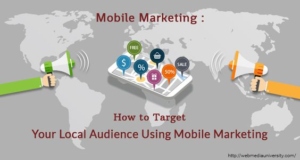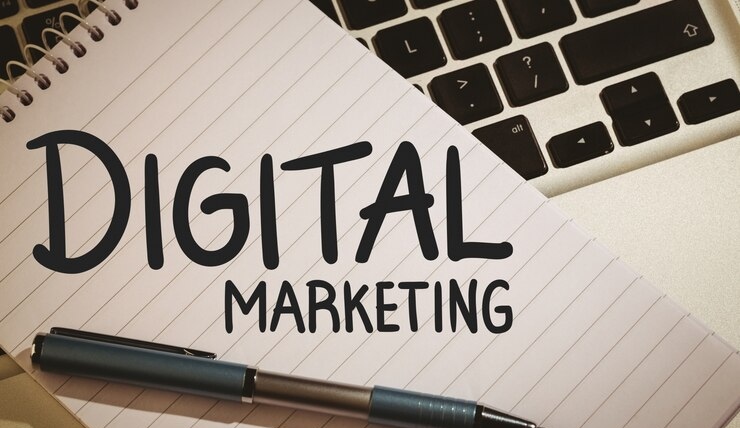Mobile Marketing: Definition, Types, How its work, and its importance
Mobile marketing refers to the use of mobile devices, such as smartphones and tablets, as a platform for advertising and promoting products or services. It leverages mobile technologies and communication channels to reach a target audience, engage users, and drive desired actions. Mobile marketing encompasses a variety of strategies and tactics to connect with consumers on their mobile devices. Here are some key aspects of mobile marketing:
1. SMS Marketing (Short Message Service): Sending text messages to mobile users to deliver promotional content, alerts, or updates. It’s a direct and immediate way to communicate with consumers.
2. Mobile Apps: Developing and promoting mobile applications to provide users with a convenient and interactive way to access products or services. In-app advertisements and notifications are common methods used within mobile apps.
3. Mobile Websites: Optimizing websites for mobile devices to ensure a seamless and user-friendly experience for visitors accessing the site from smartphones or tablets. Responsive design is crucial for accommodating various screen sizes.
4. Location-Based Marketing: Using the location data of mobile users to deliver targeted and relevant content or offers. This can include geotargeted ads, location-based notifications, or special promotions based on a user’s current location.
5. Mobile Search Advertising: Optimizing content for mobile search engines and utilizing paid advertising on search engine results pages for mobile users. Mobile search ads are designed to fit the smaller screens of mobile devices.
6. Mobile Social Media Marketing: Leveraging social media platforms to engage with mobile users through posts, ads, and interactive content. Social media apps are widely used on mobile devices, making them a valuable channel for marketing efforts.
7. Mobile Video Marketing: Creating and distributing video content specifically tailored for mobile users. Short-form videos, such as those on platforms like TikTok and Instagram, are popular in mobile marketing.
8. Mobile Email Marketing: – Mobile marketing generates valuable data insights, helping marketers understand user behavior and preferences. As a significant portion of email is accessed on mobile devices, it’s essential to ensure that emails are mobile-friendly.
9. QR Codes and Augmented Reality (AR): Integrating QR codes or AR experiences into marketing materials to provide users with interactive and engaging content. This can be a creative way to bridge the physical and digital worlds.
10. Mobile Payments and Wallets: Facilitating transactions through mobile payment platforms and digital wallets. This can include in-app purchases, mobile payment systems, and other forms of mobile commerce.
Effective mobile marketing involves understanding the preferences and behaviors of mobile users, delivering personalized and timely content, and optimizing campaigns for various mobile devices and platforms. The goal is to create a seamless and engaging experience that encourages user interaction and, ultimately, drives desired outcomes for businesses.
How to do work mobile marketing?
Working in mobile marketing involves implementing strategies and tactics to promote products or services through mobile devices. Here are steps to get started in mobile marketing:
1. Understand Your Audience:
– Identify your target audience and understand their mobile usage habits, preferences, and behaviors.
– Consider factors such as demographics, location, device preferences, and the platforms/apps they use.
2. Optimize for Mobile Devices:
– Ensure your website, emails, and any digital content are mobile-friendly and responsive.
– Optimize for various screen sizes and resolutions to provide a seamless user experience.
3. Utilize SMS Marketing:
– Implement SMS campaigns for timely promotions, alerts, and updates.
– Obtain explicit consent from users before sending messages to comply with regulations.
4. Develop a Mobile App:
– If applicable, create a mobile app to provide a convenient and engaging experience for users.
– Incorporate features that add value to the user and encourage frequent interaction.
5. Implement Location-Based Marketing:
– Utilize geotargeting to deliver relevant content or promotions based on a user’s location.
– Consider location-based notifications and offers to enhance engagement.
6. Utilize Social Media:
– Leverage social media platforms to connect with mobile users.
– Create mobile-friendly content and ads on platforms like Facebook, Instagram, Twitter, and TikTok.
7. Invest in Mobile Search Optimization:
– Optimize your website and content for mobile search engines.
– Implement mobile-focused SEO strategies to improve visibility in mobile search results.
8. Create Mobile-Friendly Video Content:
– Develop short, engaging videos tailored for mobile users.
– Consider platforms like YouTube, Instagram, and TikTok for sharing video content.
9. Explore QR Codes and AR:
– Integrate QR codes or AR experiences into marketing materials for interactive content.
– Use creative and engaging approaches to capture the audience’s attention.
10. Consider Mobile Payments:
– If applicable, enable mobile payments and digital wallets to streamline transactions.
– Provide a secure and convenient payment experience for users.
Importance of Mobile Marketing:
1. Widespread Mobile Usage:
– The majority of consumers use mobile devices, making it a crucial channel for reaching a broad audience.
2. Instant Connectivity:
– Mobile marketing allows for immediate and direct communication with users through channels like SMS and push notifications.
3. Personalization and Targeting:
– Mobile marketing enables personalized campaigns based on user preferences, behaviors, and location data.
4. Convenience and Accessibility:
– Mobile devices are always accessible, providing marketers with opportunities to engage users at any time and place.
5. Mobile Commerce Growth:
– The rise of mobile commerce (m-commerce) emphasizes the importance of optimizing for mobile devices in e-commerce and transactions.
6. App Engagement:
– Mobile apps provide a dedicated space for brands to engage with users, offer exclusive content, and drive loyalty.
7. Emergence of New Technologies:
– Advancements in technologies like augmented reality (AR) and QR codes open up innovative possibilities for mobile marketing.
8. Data Insights:
– Mobile marketing generates valuable data insights, helping marketers understand user behavior and preferences.
9. Social Media Dominance on Mobile:
– Many social media interactions occur on mobile devices, making social platforms a key component of mobile marketing strategies.
10. Competitive Edge:
– Brands that effectively utilize mobile marketing gain a competitive edge by staying relevant and accessible to their target audience.
In summary
Mobile marketing is essential for reaching and engaging a diverse audience in today’s digital landscape. It provides opportunities for personalization, immediate communication, and innovative approaches to capture and retain consumer attention.



